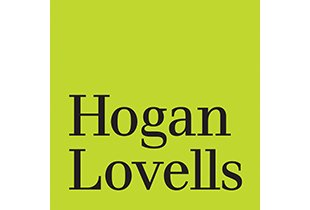An interesting judgment was delivered by the Honourable J Majiki on 19 of November 2013 in the Eastern Cape High Court, Port Elizabeth. The first and second applicants under case 3521/2012 were ABSA Bank Limited and Maria Ramos respectively.
The second respondent was JHJ van Rensburg NO in his official capacity as business rescue practitioner of NJO Du Plessis Building Construction Contractors CC (NJO). NJO and Van Rensburg had been the applicants for an order convening an insolvency enquiry, in terms of sections 417 and 418 of the Act, into the affairs of Milkwood Construction Limited (in liquidation). The first respondent was Paul Erasmus Jooste NO who was appointed commissioner of the enquiry in terms of the provisions of section 418 of the Act.
ABSA and Ramos sought an order interdicting and restraining the commissioner from authorising further summonses against the employees of ABSA in the enquiry.
The summonses had called on Ramos or her duly authorised agent to testify on matters involving the affairs and property of Milkwood, and in particular matters within her knowledge concerning the dealings and association of Milkwood with NJO and Erf 1109 Marina Martinique CC (in liquidation) (Erf 1109).
The annexure to the summons listed documents relating to the development bonds, loan agreements in respect of the development on Erf 1109, progress payments, sale agreements, bank statements and copies of correspondence.
The documentation requested was wide and involved the three entities, Milkwood, NJO and Erf 1109. It must be emphasised that Erf 1109 is the owner of the property that was to be developed. Milkwood was the management company and NJO was contracted as a builder on the property of Erf 1109. A loan agreement was entered into between ABSA and Erf 1109 and a development bond was registered over Erf 1109.
Erf 1109 defaulted on the loan and was liquidated by ABSA. According to Van Rensburg R5 million was paid to the members of Milkwood, even though it was supposed to have been paid to NJO as the sole recipient of progress payments on the development bond. Payments were made by Erf 1109 to the shareholders of Milkwood that could not be accounted for and there was a refusal to pay the builder, being NJO. This had led to the financial distress of NJO and in turn it being placed into business rescue. Van Rensburg as the business rescue practitioner was seeking to recover money for the benefit of NJO and its creditors.
ABSA attacked the summons on the basis that the documentation sought in the summons related to the affairs of Erf 1109 rather than Milkwood. It was stated that Milkwood was not owed any money by Erf 1109 and it was NJO (the builder) that was owed money by Erf 1109. The contention was strongly advanced that no employee of ABSA would know of dealings between Milkwood, NJO and Erf 1109.
In the answering affidavit, Van Rensburg stated that he could not obtain information or an explanation regarding the monies that flowed to Milkwood and that there was no accounting for the money and it was clear that the money had disappeared. Were the funds to flow back from Milkwood's shareholders to Erf 1109 there would be additional funds in Erf 1109's estate, which would benefit its creditors including NJO.
Judge Majiki emphasised that the ABSA officials were subpoenaed so that the business rescue practitioner of the builder, the builder and the owner of the property (Erf 1109) could get clarity on the monies paid to Milkwood from the development bond.
The judge made an important finding in paragraph 17 of the judgment, namely that ABSA could not hide behind the fact that it had complex administrative systems because it must have had access to the file when ABSA applied for the liquidation of Erf 1109. The judge, at paragraph 18, emphasised that the commissioner concluded that the affairs of the three entities were so interrelated that one could not "get to the bottom of the affairs of Milkwood without reference to Erf 1109 and NJO".
The judgment emphasised that Milkwood never had an account with ABSA and never conducted business with ABSA and therefore any payments to any directors of Milkwood concerned Erf 1109.
The fundamental and crisp issues were:
- Whether the commissioner could enquire into matters relating to the development bond of Erf 1109.
- Whether the commissioner could call for witnesses to testify about the affairs of Erf 1109 and payments made from the development bond of Erf 1109, in particular those made to Milkwood.
The issue that the judge had to decide is of importance because an effective enquiry must deal with all the interrelated entities in order to meaningfully obtain an answer as to what has happened. It is commonplace for liquidated companies to be situated within a group structure and therefore the affairs of one group company cannot be viewed in isolation from the others.
The commissioner said that the fundamental question was whether the summons called for relevant information and whether the commissioner had reasonable grounds for believing that Ramos (or her agent) might be able to give material information concerning the affairs of Milkwood.
The honourable judge quoted Henochsberg on the Companies Act (page 889) where it is emphasised that there is no limitation upon the matters on which there can be interrogation, provided that in each case those contemplated the trade, dealings, affairs or property of the company. The judge distinguished the case of Lordan v Dusky Dawn Investments (in liquidation) 1998 (4) SA 519 (SE) at 525 where it was held that an interrogation, the purpose of which is to expose misdemeanours or liability of directors for mismanagement with no actual potential effect on the financial interest of the company or its creditors, should not be permitted by the utilisation of either sections 415 or 417 of the Act. Majiki J found merit in the argument of the respondents that ABSA used the information on Milkwood contained in its file for the liquidation application of Erf 1109 and ABSA ought therefore to make an effort to provide the information required.
In quoting the case of Gumede and others v Subel NO and others 2006 (3) SA 498 (SCA) at 505 to 506, the judge rejected ABSA's assertion that because documents are confidential, the person who is being interrogated is entitled to withhold them. The proper approach is to determine whether the documents requested will throw light on the affairs of the company being wound up.
It is the writer's view that this is a well-reasoned judgment. The facts of the matter appear to be very simple, namely that there was a development bond with ABSA. Monies were paid to the company in liquidation (the monies disappeared) and not to the builder who was entitled to payment. With respect, the honourable judge was perfectly correct in stating that "an enquiry into the affairs of Milkwood cannot be limited to investigation of monies owed to Milkwood". Accordingly, the judge found that an investigation into the affairs of Milkwood would also include those that have a bearing on the financial interest of the interrogating creditor, NJO. The judge emphasised that the commissioner ruled that Milkwood, Erf 1109 and NJO are interrelated.
It is hoped that this judgment further narrows the scope for uncooperative witnesses to withhold relevant evidence from an insolvency enquiry.
Written by Keith Braatvedt, Hogan Lovells (South Africa)






